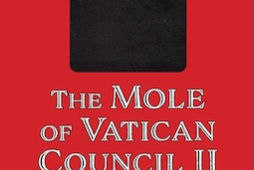Book: Kill Boxes: Facing the Legacy of US-Sponsored Torture, Indefinite Detention, Drone Warfare

Kill Boxes: Facing the Legacy of US-Sponsored Torture, Indefinite Detention, and Drone Warfare
Elisabeth Weber, Punctum Books, 2017, ISBN-13.978-0-9985318-4-7
The 2004 image of the hooded prisoner, standing on a box with his arms outstretched and wired for electrocution, inevitably brings to mind Rio's Christ the Redeemer statue. It is the starting point in Elisabeth Weber's book about torture, drones and Guantanamo, and it could not be more timely.
Weber, a German academic teaching in California, describes the "shock of recognition" when confronted by the Abu Ghraib prison image. She uses the memoirs of Jean Amery, who survived torture at the hands of the Gestapo, to examine the disorientation experienced when one's flesh is reduced to pain, and the soul-crushing moment our expectation that someone might help us suddenly vanishes.
"Kill Boxes" also describes how the Guantanamo authorities confiscated and destroyed poems written by detainees, the "unclassified beings" whose legal status was erased. Evidently, the US feared prisoners would use poems to send out coded messages, although that doesn't explain why even possessing one's own poems in one's cell was deemed unacceptable.
The election of President Trump has ensured that neither torture nor Guantanamo are matters confined to recent history. Also pertinent is the centrality of drones to the war on terror. Weber reflects on the impact of living with the constant threat of attack from an unknown, invulnerable enemy buzzing overhead. Civil society stops for fear that groups of people meeting will be considered suspicious. Children find it hard to concentrate at school as drones hover overhead each day in these "open air prisons." The paradox, Weber says, is that drones enable the US to be involved in more and larger conflicts than before, using far fewer of its own citizens, in countries against which it has not actually declared war.
Weber concludes by asking how we can expect to live at peace with people after they have endured these perversions of international humanitarian law. She offers a final, post-modern observation: the producers of the TV show "24," dropped the use of torture scenes because they had become "trite," and no longer shocking or surprising. What a testament to our times.

















